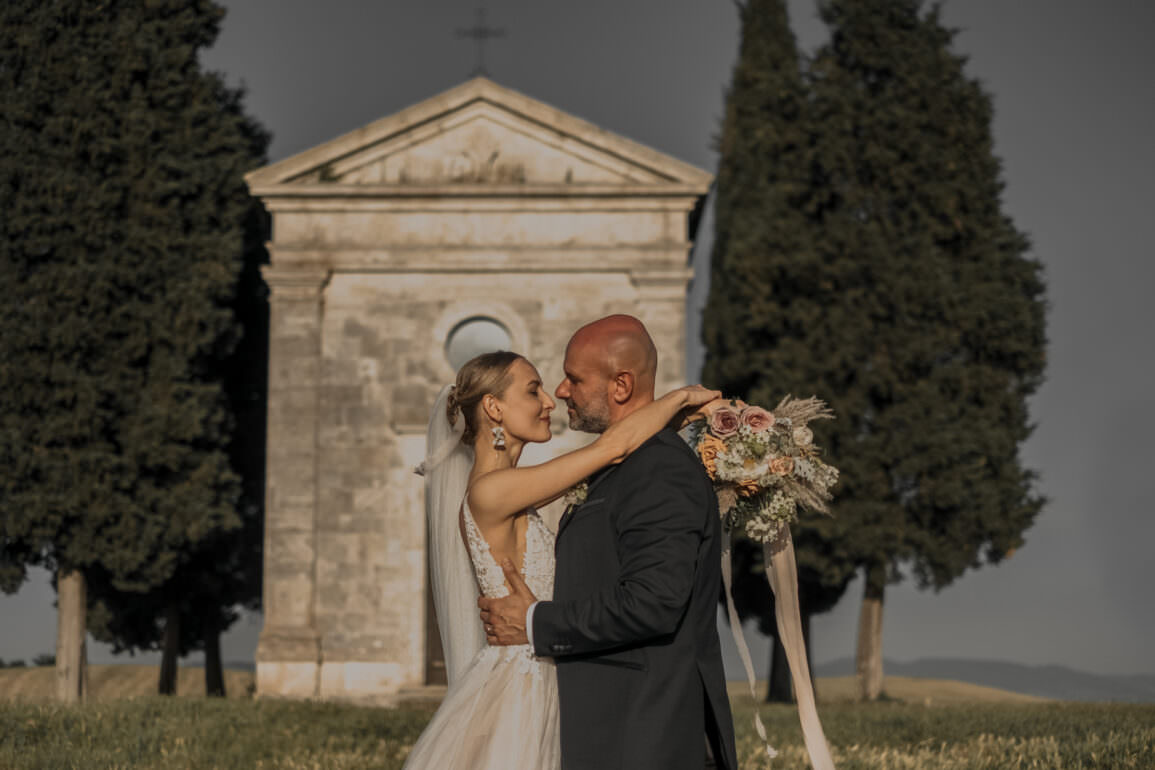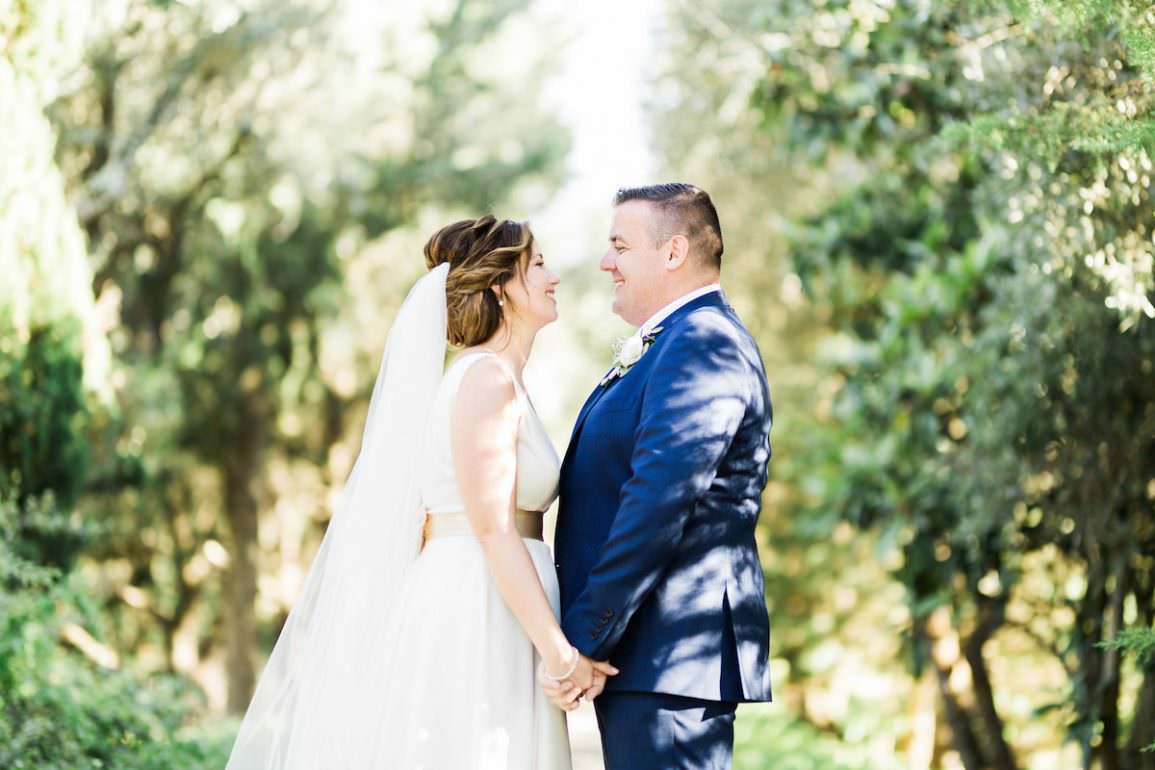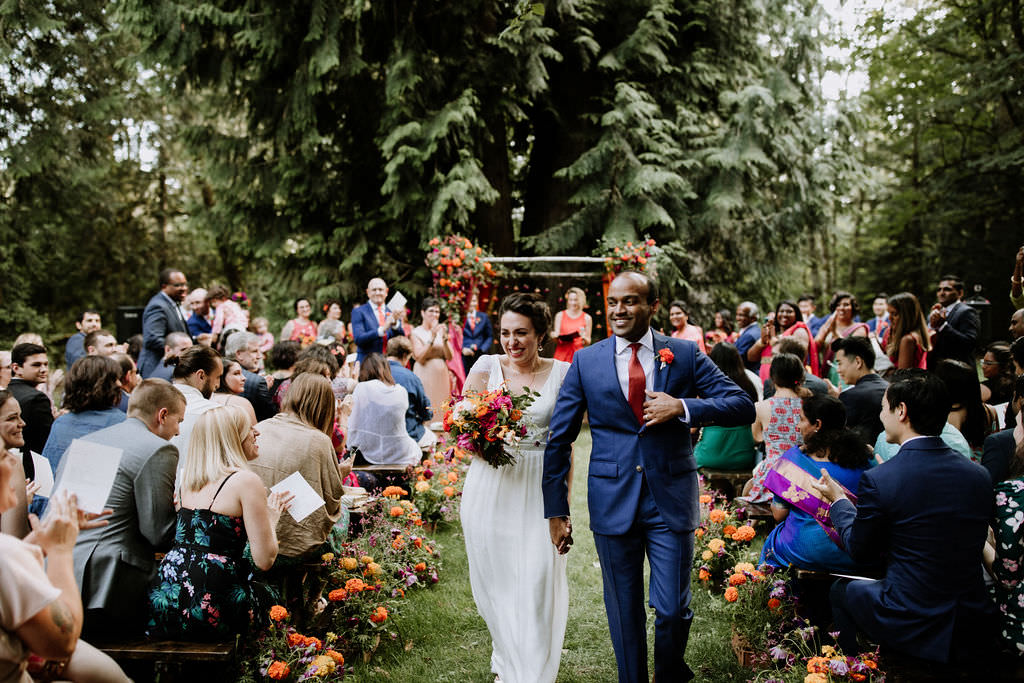In this comprehensive guide, we'll explore everything you need to know about wedding websites, including where to create them, what information to include, how to share the URL, when to set it up, and more.
In the digital age, wedding websites have become an indispensable tool for modern couples to streamline communication, share important details, and enhance the guest experience. From venue information and event details to accommodations, frequently asked questions and more, these online platforms serve as a central hub for all things wedding-related.
Benefits to Having a Wedding Website
Before we share all the good stuff, let’s first begin by sharing the benefits to having a wedding website. It can feel daunting to have another thing on your wedding to-do list, but trust us when we say there are advantages to creating your own wedding website.
- Centralized Hub: Guests can find everything they need in one convenient location, reducing the need for multiple forms of communication. Plus, they can revisit it as often as needed.
- Accessibility: Unlike traditional paper invitations or save-the-date cards, which can easily get lost or misplaced, a wedding website is accessible to guests anytime, anywhere. They can access the website from their computers, smartphones, or tablets, ensuring they have all the information they need at their fingertips.
- Ease of Updates: Whether it's a venue change, updated RSVP deadline, or additional accommodation options, couples can quickly and easily communicate updates to their guests.
- Management: Spreadsheets be gone! Many wedding websites offer digital RSVP features, allowing guests to RSVP directly through the website, share their meal preference and more. This streamlines the process for both couples and guests, making it easier to keep track of guest numbers and dietary preferences.
- Collect Information: Most platforms have the ability to collect guests info such as their email or mailing address. By having this information readily available, sending thank yous has never been easier!
- Registry Integration: Now you don’t even have to worry about sharing this link multiple places. Wedding websites often include links to the couple's wedding registry or gift preferences, making it easy for guests to find and purchase gifts that align with the couple's tastes and preferences. This streamlines the gift-giving process for both guests and couples.
- Environmental Friendliness: Opting for a digital wedding website can be more environmentally friendly. Most couples will still incorporate traditional paper invitations and save-the-dates, but could solely rely on your wedding website if you truly wanted to. By doing so, couples can minimize their environmental impact while still sharing important information with their guests.
Now let’s get to the creative part, shall we?

Where to Create Your Wedding Website
There are numerous platforms available that offer similar features and customization options. Websites like Zola, Minted, and Joy provide user-friendly templates and tools to create personalized wedding websites that reflect your unique style and preferences. Consider factors such as design options, RSVP management, and guest communication features when choosing the right platform for your needs. If there is an option to create a custom URL, you may also want to consider doing so. Having a URL with your names or future last name that’s easy to remember is helpful to guests.
What Information to Include
When designing your wedding website, it's crucial to include all the pertinent details that your guests will need to know. You’ll want to make sure your info is clear and concise, but not overboard.
- Event Details: Clearly outline the date, time, and location of both the ceremony and reception. Include addresses, venue names, and any pertinent directions or parking instructions to help guests navigate to the festivities.
- RSVP Management: Simplify the RSVP process by incorporating a digital RSVP feature. This allows guests to easily indicate their attendance and provide any necessary dietary preferences or restrictions. Streamlining this process helps you keep track of guest numbers and ensures everyone's needs are accommodated.Accommodations: Provide comprehensive information on nearby hotels, transportation options, and any room blocks you've arranged for out-of-town guests. Include booking instructions, reservation deadlines, and any special rates or amenities available to your guests.
- Registry: Direct guests to your wedding registry or gift preferences by including convenient links on your website. This makes it easy for guests to find and purchase gifts that align with your tastes and preferences. Additionally, consider including any specific instructions or requests regarding gifts (such as if you prefer them to be sent directly to you) to ensure a smooth and stress-free gift-giving process.FAQs: Anticipate and address common questions and concerns by including a section dedicated to frequently asked questions. Cover topics such as attire recommendations, parking arrangements, ceremony logistics, if kids are invited, and any other pertinent details to help guests feel informed and prepared for your big day.
- Love Story: Add a personal touch to your website by sharing your love story or engagement journey with your guests. Include photos of you and your partner, along with a narrative detailing how you met, fell in love, and got engaged. This creates a heartfelt connection with your guests and adds a memorable element to your wedding website.
How to Share the URL
Once your wedding website is live, it's essential to share the URL with your guests to ensure they have access to all the necessary information. You can include the website link on your save-the-date cards, wedding invitations, and other communication channels. By doing this, you will avoid overcrowding your actual stationery suite or invitation design, while providing all the details needed in one spot. Additionally, you can share the URL via email, social media platforms like Facebook and Instagram, or through word of mouth. Encourage guests to bookmark the website for easy access and updates leading up to the big day.

When to Set It Up
When it comes to setting up your wedding website, timing is key. It's best to get started shortly after finalizing your wedding date and venue to ensure you have ample time to curate all the essential details. By setting up your website early on in the planning process, you can stay organized and give yourself plenty of time to perfect every aspect.
Ideally, aim to have your wedding website up and running at least six to eight months before your wedding date. This time frame allows your guests to have sufficient notice and access to all the information they need to plan accordingly. Whether it's booking accommodations, arranging transportation, or marking their calendars, providing ample time ensures that your guests can make arrangements without feeling rushed or stressed.
By setting up your wedding website early, you also have the flexibility to make updates and additions as needed throughout the planning process. As you finalize details such as the ceremony timeline, reception menu, and accommodation options, you can easily update your website to keep guests informed and up-to-date.
Customization and Personalization
Make your wedding website unique by incorporating personal touches and customizations that reflect your personalities and style as a couple. Choose a color scheme, font, and layout that complements your wedding theme or aesthetic. Add photos, videos, and anecdotes to share your love story and journey together. Consider adding interactive elements such as polls, quizzes, or countdown timers to engage your guests and build excitement for the big day.

Managing Guest Communication
There are so many unique features to wedding websites nowadays that it’s great to make best use of them all! Utilize your wedding website as a communication tool to keep guests informed and updated throughout the planning process. Send out email reminders or newsletters with important updates, such as changes to the schedule or additional accommodation options. Create password-protected sections for sensitive information, such as the rehearsal dinner location or bridal party details. Encourage guests to sign up for email or text notifications to receive instant updates and announcements.
Utilizing Analytics and Tracking
Take advantage of analytics tools provided by your chosen website platform to track visitor engagement and RSVP responses. Monitor traffic to your website to see which pages are most popular and where guests are spending the most time. Use this data to refine your content and make adjustments as needed to better meet the needs of your guests.
Wedding websites are a valuable resource for couples to streamline communication, share important details, and create a personalized experience for their guests. By choosing the right platform, including essential information, sharing the URL effectively, and setting it up in a timely manner, you can create a wedding website that enhances the guest experience and adds a memorable touch to your special day.
Cover photo: Ketut Subiyanto; Photo 1: Yan Krukau; Photo 2: Ketut Subiyanto; Photo 3: Ketut Subiyanto











You must be logged in to post a comment.